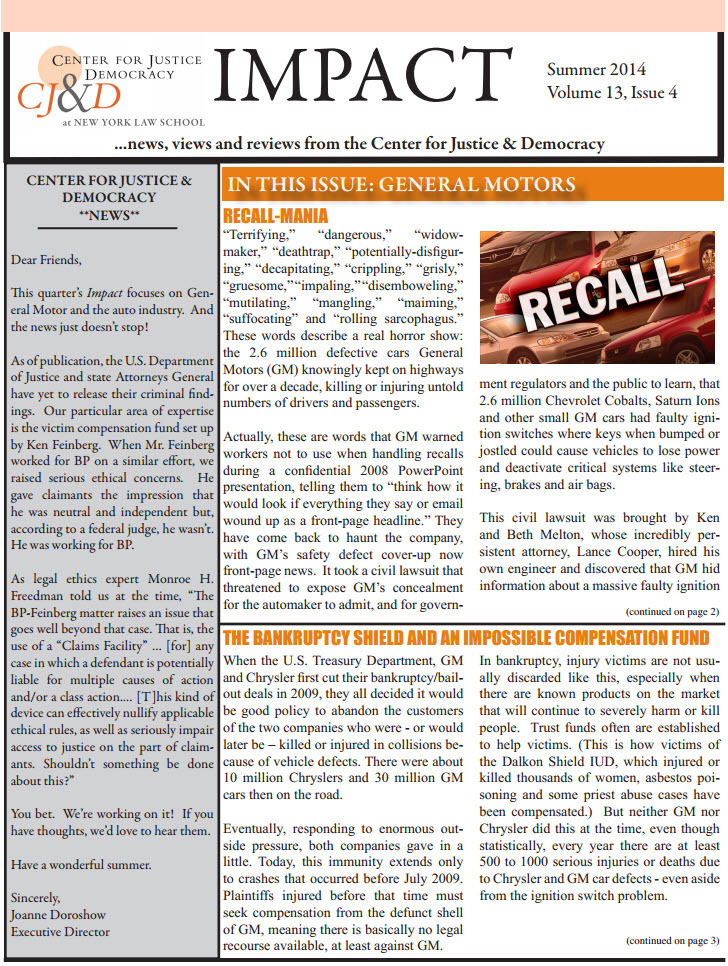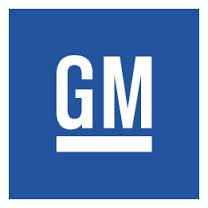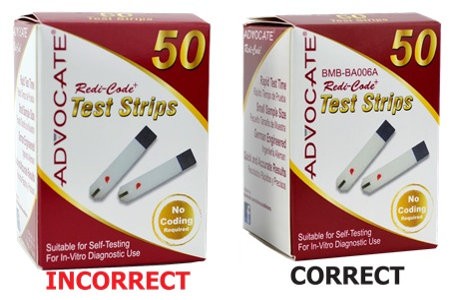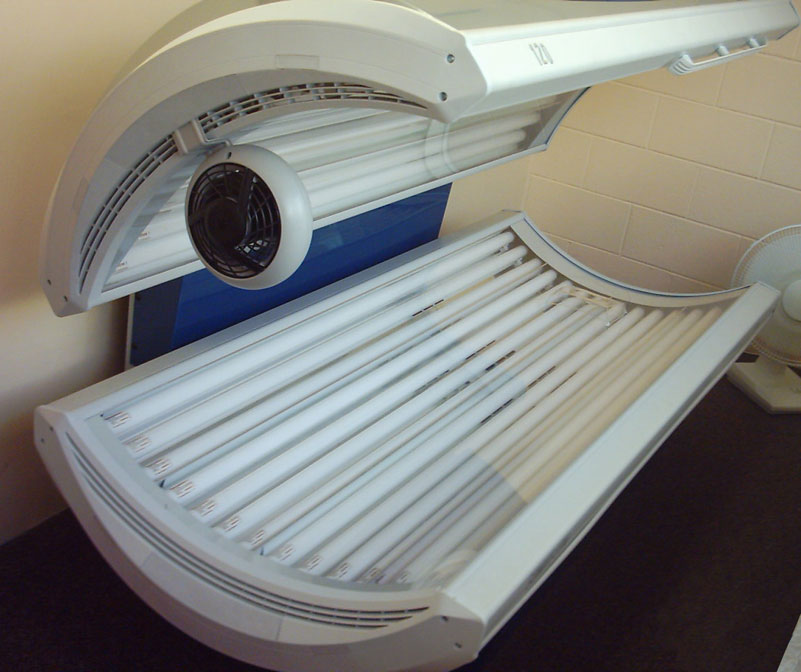The Summer issue of the Impact Magazine from the Center for Justice and Democracy focuses on General Motors’ Product Liability
 For over a decade, GM knowingly kept 2.6 million defective cars on the road killing and injuring an untold numbers of road users. From the civil lawsuit brought by personal injury lawyer Lance Cooper who discovered that GM hid information about the defective ignition switch to the multiple recalls of 2014, Impact Magazine, the quarterly issue from the Center for Justice and Democracy focuses on General Motors’ product liability. The magazine looks at the history of the recalls as well as the bankruptcy shield, the issues with used and rented cars and also questions the NHTSA stand.
For over a decade, GM knowingly kept 2.6 million defective cars on the road killing and injuring an untold numbers of road users. From the civil lawsuit brought by personal injury lawyer Lance Cooper who discovered that GM hid information about the defective ignition switch to the multiple recalls of 2014, Impact Magazine, the quarterly issue from the Center for Justice and Democracy focuses on General Motors’ product liability. The magazine looks at the history of the recalls as well as the bankruptcy shield, the issues with used and rented cars and also questions the NHTSA stand.
Download the complete issue of Impact here
 New York Personal Injury Attorneys Blog
New York Personal Injury Attorneys Blog


 The potentially defective cars are recalled mostly because they may have ignition defects that lead to inadvertent key rotation. The models recalled are models of the Cadillac CTS and SRX, and the Chevrolet Malibu, Monte Carlo and Impala, as well as the Oldsmobile Intrigue and Alero, and Pontiac Grand Am and Grand Prix. The model years range from 1997 to 2014. The trading of GM shares was temporarily suspended during the announcement.
The potentially defective cars are recalled mostly because they may have ignition defects that lead to inadvertent key rotation. The models recalled are models of the Cadillac CTS and SRX, and the Chevrolet Malibu, Monte Carlo and Impala, as well as the Oldsmobile Intrigue and Alero, and Pontiac Grand Am and Grand Prix. The model years range from 1997 to 2014. The trading of GM shares was temporarily suspended during the announcement. The confusing labelling may lead customers to believe they can use these test strips with the Advocate Redi-Code blood glucose meters, model numbers TD-3223E, TD-4223E, TD-4223F, TD-4276 manufactured by Taidoc Technology Corp which could result in incorrect glucose results.
The confusing labelling may lead customers to believe they can use these test strips with the Advocate Redi-Code blood glucose meters, model numbers TD-3223E, TD-4223E, TD-4223F, TD-4276 manufactured by Taidoc Technology Corp which could result in incorrect glucose results. 
 The defective ignition switch in some GM cars was a widely known issue among GM engineers and executives in 2012 and long before that General Motors had received multiple warning about the defect said David Friedman, the acting administrator of the National Traffic Safety Administration of the Transportation Department Today in a joint news conference with Transportation Secretary Anthony Fox. As part of the settlement GM agreed to pay a record $35 million civil penalty and to take part in unprecedented oversight requirements.
The defective ignition switch in some GM cars was a widely known issue among GM engineers and executives in 2012 and long before that General Motors had received multiple warning about the defect said David Friedman, the acting administrator of the National Traffic Safety Administration of the Transportation Department Today in a joint news conference with Transportation Secretary Anthony Fox. As part of the settlement GM agreed to pay a record $35 million civil penalty and to take part in unprecedented oversight requirements. In a previous
In a previous  The GM restructuring plan approved by Judge Gerber in New York in 2009 protects the automaker from
The GM restructuring plan approved by Judge Gerber in New York in 2009 protects the automaker from 